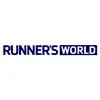Up is down. Black is white. And dehydration makes you faster—if you time it right. It seems crazy, but scientists and coaches have begun experimenting with dehydration as a training tool, using it to trigger endurance-boosting adaptations in athletes' blood. That translates into faster race times when the athletes are fully hydrated. Unlike many techniques used by elite runners, this one's easy to try at home. But it's also easy to get wrong, so approach it with caution.
The best way to dehydrate yourself is to train in hot conditions without immediately replacing all the fluid you sweat out. Runners have a long history of doing this to prepare for summer races, but it was only in 2010 that University of Oregon researchers discovered that dehydration training also boosts performance in cool and comfortable conditions.
More From Runner's World: Thirst vs. Dehyrdration
The secret? Like muscular fatigue and other stresses, dehydration tells your body to make changes to counteract the stress. If you experience dehydration during workouts for several days in a row, your body responds by increasing the volume of blood plasma pumping through your arteries. That makes it easier to get oxygen-rich red blood cells to your muscles, allowing you to sustain a faster pace for longer. Here's how to harness this effect in your training:
More From Runner's World: 8 Biggest Hydration Myths, Busted
Schedule It
You can get the benefits of dehydration in as little as five days. In a study published earlier this year, New Zealand researchers found 90 minutes of light exercise without midworkout drinking on five straight days boosted plasma volume by 8 percent—enough to lower race times by a few percentage points. They used easy-effort intensity, but you can achieve similar effects with shorter, harder bouts or cross-training.
The best time for a dehydration block is two to four weeks before your goal race, as you transition from heavy training to taper. If your schedule dictates a longer gap, add two dehydration runs per week until a week before the race.
More From Runner's World: Best Foods For Hydration



